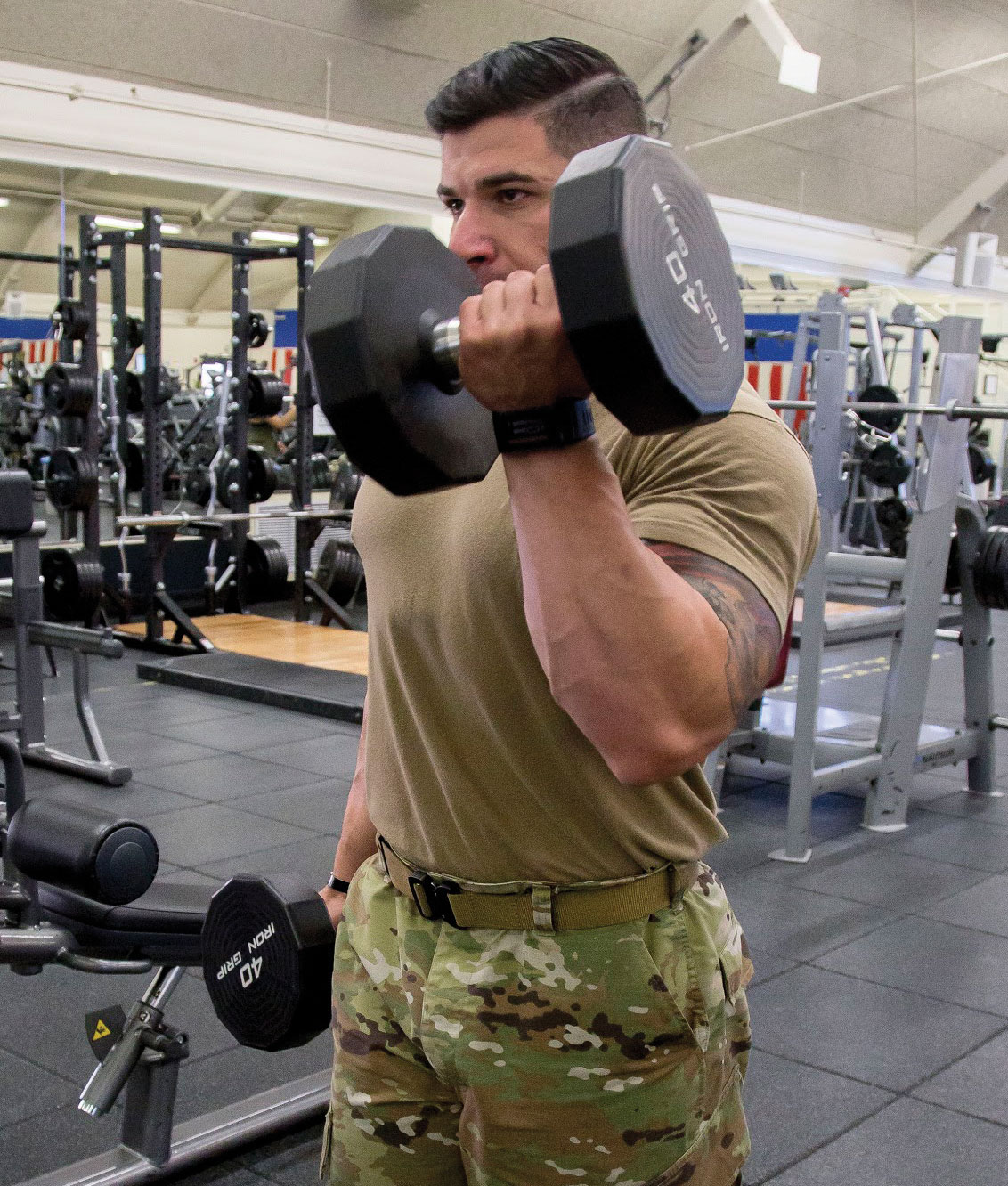FORT IRWIN, Calif. — Seven years ago, Staff Sergeant Ahmed Alazzawi integrated a body building regiment into his physical fitness routine to help in sustaining his physique. This includes his daily required “Physical Training,” along with a rigorous lifting schedule, and a high-protein diet. Alazzawi and his mentor evaluated his progress and adjusted his program every 90 days to improve his development.
“The gym is super important, it gives you the opportunity to connect with your peers and mentors in an informal way,” Alazzawi said. “When I was 28, I realized I needed to do something different that would have lasting results. The way you look, and your physical health is important, especially in the Army. I need to be my best.”
Alazzawi said he meal preps to help with his nutritional goals and his high protein diet mainly consists of tuna, beef jerky, and protein shakes, and some supplements that are easy to eat on the go. He also acknowledges that he doesn’t restrict himself when eating meals with his family.
“Today I am 35 and I can keep up with the 18-year-olds and that feeling is amazing,” Alazzawi said.
Alazzawi, who sustained a neck and shoulder injury falling from a gun-truck while deployed in Syria, said he had the option to give up or adjust. He chose the latter, saying his injuries would be worse if he stopped his training regime.
“At the time and place (Syria) I needed a break,” he said. “I had minimal medical access, no access to the gym, so I started with push-ups, sit-ups, and basic cave man activities.” Alazzawi said he sought medical care and advice once he was home, but was stressed that he may not be able to lift like he once did.
Alazzawi still suffers from chronic pain sustained by his injury, but focuses on building other muscles to compensate.
“I’m used to the pain” Alazzawi said. “You learn how to make it (lifting) work, and dealing with a little pain. It takes longer but you have to be patient it’s a work in progress.” Alazzawi said that his muscle conditioning and strength helps with his body not being as impacted by his injuries and limitations but says it can be mentally exhausting.
“My wife was extremely supportive, I feared I would never be what I want,” Alazzawi said. “When she would see me getting discouraged, wanting to quit, she gives me the confidence and provides mental support to keep going, to keep me training. She knows how important it is to me.”
Alazzawi, who doesn’t do bench presses because of his own injury, suggested going to see a physical therapist if you are hurt. He recommends taking a break and reassess your training routine, and following your physical therapist or doctor’s recommendations.
“The Army Wellness Center on post is state-of-the-art facility and the best place to go if you are injured. Being self-aware and knowing your limitations is key to not getting hurt or making and existing injury worse, ” Alazzawi said.
“Make sure that your lifting technique is done properly will also keep you from getting hurt,” Alazzawi said. “Also finding a good mentor that is knowledgeable and that will provide honest feedback could help, along with routinely practicing in front of a mirror so you can watch your form to keep you on track.”
Alazzawi believes that you need to put your livelihood first. Lifting helps maintain that for the Army, motivating himself and fellow soldiers. Alazzawi said that he would like to be like Sergeant Major Nickia Haynes, recounting that his command team, “pushes the team to the limit.”
“Sergeant Major smokes 19-year-old soldiers,” Alazzawi said laughing. “He’s always up for training, in the ‘Box’ and he will just start running up mountains, lifting water bottles or rocks, anything to get the workout in and keep us motivated.”
Alazzawi said he would like to eventually compete professionally, but is currently proud of his progress, not being defined by his injury, and is focusing on being a better him.
“It’s not about having everything, you have to hold a stick in the middle and find balance,” Alazzawi said.












